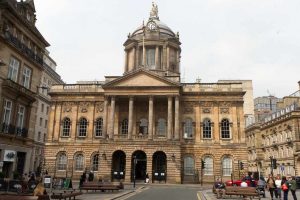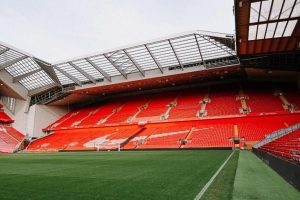Act now say business leaders despite £100bn promise

THE Government will later unveil details of a £100bn infrastructure spending plan for the next Parliament, but many in business are calling for more immediate measures to kick-start the economy.
Chancellor George Osborne’s spending review offered a commitment on the HS2 rail link and pledged to devolve £10bn to local enterprise partnerships, although this was far lower than the £48bn suggested by Lord Heseltine in his No Stone Unturned report.
The spending review was designed to trim a further £11.5bn off Government spending during 2015-16, with many central departments faced with cutbacks of around 10% to their annual budgets.
Phil Orford, chief executive at the Forum of Private Business, said: “Money allocated to capital growth spending represents vast sums, and on the face of it infrastructure around the UK is going to get long overdue investment. This will be music to the ears of small business only too familiar with sub-standard transport networks and digital infrastructure still lagging behind other countries, but let’s not forget this is some way off.”
He added: “The allocation of £2bn to the single local growth fund is no doubt the biggest disappointment of the day. It doesn’t give the long term commitment businesses were looking for and needed to hear to really get behind the local growth agenda. Given the disappointingly small amount going into the fund, the onus now is on the 39 LEPs to submit clear and convincing growth strategies focused on a small number of key local policies if they are going to make real change.”
Diane Brennan, managing partner of Cheshire accountant Jackson Stephen, said: “Better roads and faster train journeys don’t translate quickly into more revenue for SMEs so there must be more focus on quicker wins for businesses.”
Tim Potter, chief executive of HURST Accountants, which has offices in Stockport, Manchester and London, said: “Planned infrastructure investments are very positive for business but none are immediate. The Chancellor will be under a lot of pressure to bring these forward, not least by his own party as the next election looms.
“Businesses that supply products and services to those infrastructure projects will be delighted, but will also be concerned about how they survive the intervening period. The cuts made to date have hit businesses supplying the public sector hard, and further spending cuts will be unwelcome news to those firms.”
Jonathan Hurst, head of KPMG in the North West, said: “We all await with interest details of the £100bn of schemes that the Chancellor said would follow. It is inevitable that much of that money will take years to convert to spades in the ground, but a green light to go and buy the spades is at least a good start.”
Jane Forbes, director and government and public sector director at PwC Manchester, said: “We’re seeing money moving around within the overall envelope rather than new cash. In some cases, as in infrastructure, despite positive announcements of new plans, the overall numbers are still decreasing.”
John Cridland, CBI Director-General, was more supportive. He said: “The Chancellor has carefully walked a tightrope of protecting growth, while making sizeable savings to pay down the debt. Infrastructure is rightly singled out as the most effective engine for growth, as we urged. While the Government talks a good game on infrastructure we’ve seen too little delivery on the ground so far.
“It is critical we see a real pipeline of projects announced tomorrow, so investors know what schemes are going ahead, where and when. Other pro-growth areas including science, innovation, skills and exports have also been shielded from cuts. The £185m boost for the Technology Strategy Board – a crucial anchor for innovation – is particularly welcome.”








